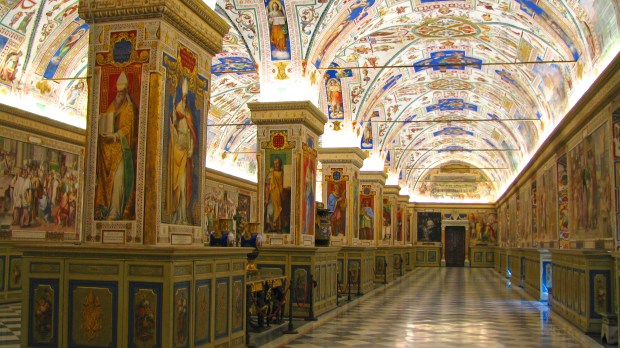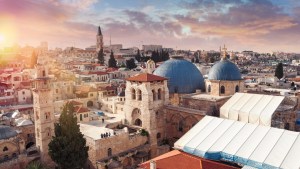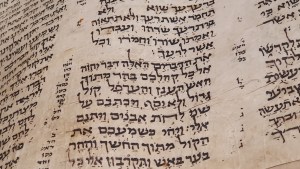The Vatican Library is taking advantage of its extensive collection of ancient texts to launch a specialized training program on Hebrew manuscripts.
In cooperation with the Argentina-based Latin American Rabbinical Seminary, the Vatican Apostolic Library program, starting Wednesday, July 19, is an intensive week of face-to-face and remote lessons for students from various universities around the world. Lectures will be taught by prominent faculty, including several rabbis.
The library has hundreds of Hebrew manuscripts, which the Vatican, in a press release, calls “invaluable testimony of the cultural and religious heritage of the Jewish people.” The collection includes Torah scrolls, biblical and exegetical texts, rabbinic literature, Jewish philosophy, liturgical books, poetry, science and kabbalistic texts. Most of the manuscripts date from the 12th to 15th centuries, with some from the 9th to 11th centuries – periods including the Crusades, the Inquisition and the expulsion of Jews from Spain.
“This collection is one of the most important in the world, above all for the originality of the copies and textual versions, which have shed light on the search for fundamental works of Judaism,” the Vatican said.
Representatives from the Marshall T. Meyer Latin American Rabbinical Seminary visited the library last December and were able to analyze the Hebrew manuscripts for the first time. They proposed to the Vatican Library a study program involving students and specialists from all over the world. Claudia Montuschi, Scriptor Latinus and Director of the Manuscript Department of the Vatican Apostolic Library, and Delio Vania Proverbio, Scriptor Orientalis and curator of the African and Near and Middle Eastern collections, collaborated with the seminary for six months on the development and implementation of the course.
The inauguration of the program will be attended by religious and Vatican authorities, such as Vatican Archivist Archbishop Angelo Vincenzo Zani; Salesian Fr. Mauro Mantovani, S.D.B., Prefect of the Vatican Apostolic Library; Rabbi Ariel Stofenmacher, Rector of the Latin American Rabbinical Seminary, and authorities of the governments of Israel and Argentina.
Origins of the Vatican Library
The origins of the Vatican Library go back to the 4th century, though the formal establishment of the modern Vatican Library dates to the 15th century, according to the design of Popes Nicholas V and Sixtus IV. Over the centuries, successive popes have further enriched and expanded its heritage.
“The collection of the Vatican Library is incredibly varied and contains around one and a half million printed books (including a rich collection of incunabula and valuable ancient material), around 80,000 manuscripts and 100,000 archival documents, as well as maps and drawings, engravings, coins and medals,” the Vatican press release said.
“The Library is open to qualified scholars, academics and researchers, to support their research needs. To guarantee access to its collections to the widest possible public, without geographical limitations, the Library has for some time undertaken a project of digitization and online publication of its materials.
The Latin American Rabbinical Seminary traces its origins to Berlin in 1819. During the 19th century, several Jewish academic programs were established in Berlin, Budapest, and London, while the 20th century saw the establishment of hundreds of Jewish or Semitic academic programs around the world.
Between the wars, several European-trained scholars and rabbis reached Latin America to revive local Jewish communities through an organization called CENTRA that linked Central European emigrants. These rabbis, together with the Jewish Theological Seminary of New York, under the leadership of Rabbi Marshall T. Meyer, founded the seminary in Buenos Aires, Argentina, in 1962. Since then, more than 100 rabbis have been ordained and more than 1,000 teachers and community leaders have completed their studies.
The seminary trains Jewish clergy and helps train non-Jewish clergy in Jewish studies. Its ordained clergy serve in 50 countries around the world.
In 2013, Image Books published On Heaven and Earth: Pope Francis on Faith, Family and the Church in the 21st Century, a collection of conversations between Francis and Rabbi Abraham Skorka, then-rector of the Latin American Rabbinical Seminary.



